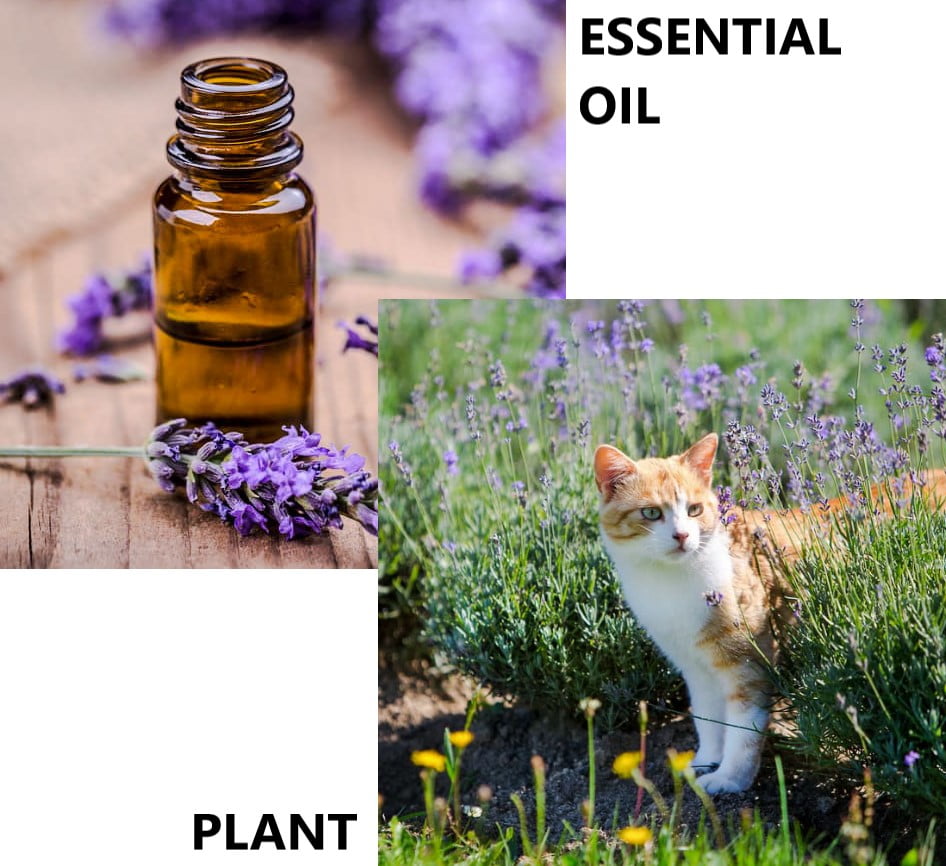The general picture drawn from the Internet, as to whether lavender is safe for cats, is that it is unsafe but I don’t think the answer to the question is as black-and-white as people make out. It’s quite a difficult question to answer precisely and with accuracy.
The first issue is that you can refer to lavender, the plant (a plant of the mint family), and you can refer to it as an essential oil.

The plant: lavender
I’ve got lavender in my garden and my cat wanders around the garden all the time. It never occurred to me that the plant was a danger to him and I don’t think it is. It’s a potential danger but the level of danger is so slight that it can be ignored in my honest opinion. He has shown no interest in eating it. He eats the long grass at the bottom of the garden. I’d expect other cats to do the same. Where there is a choice between long grass and plants domestic cats choose to eat the grass which is okay and has a beneficial effect (folic acid).
Linalool an linalyl acetate – aroma components
Lavender contains linalool and linalyl acetate. The latter is a naturally occurring phytochemical found in many plants and spice plants. The American Society for the Prevention of Cruelty to Animals (ASPCA) say that these chemicals are toxic to cats and cause nausea and vomiting if ingested because they don’t have the necessary enzymes the process them. These naturally occurring chemicals are the crux of the matter. You can research them further if you want to.
Essential oils
You can make an essential oil from the lavender plant. The chemicals mentioned above are in these essential oils but they are at a low level of concentration and therefore are beneficial to people, it is claimed. The chemicals have the potential to be harmful nonetheless at high concentrations. This points to the fact that they can harm cats and other animals.
The Pet Poisons Helpline in America makes it clear that essential oils are a danger to domestic cats. They don’t specifically mention lavender but I would take their advice on board and avoid an essential oil made from lavender if you have a domestic cat or take particular precautions when using it.
Benefits to humans
Linalool and linalyl acetate are said to have anti-inflammatory properties reducing skin inflammation and rashes (source: NutraWiki). There are probably other claimed health benefits some of which will be anecdotal.
Conclusion
If your cat ate the plant, lavender, he or she might be sick. It seems to depend upon how much. I don’t honestly think the danger is that real in terms of the plant. I would avoid using lavender oil as a precaution if you have a domestic cat companion. In fact, I think it will be fair to say that all essential oils should be avoided unless you are particularly fond of them and benefit from them sufficiently in which case take great care in protecting your cat. If you have first hand experience of feline lavender poisoning please leave a comment to help others understand better.

